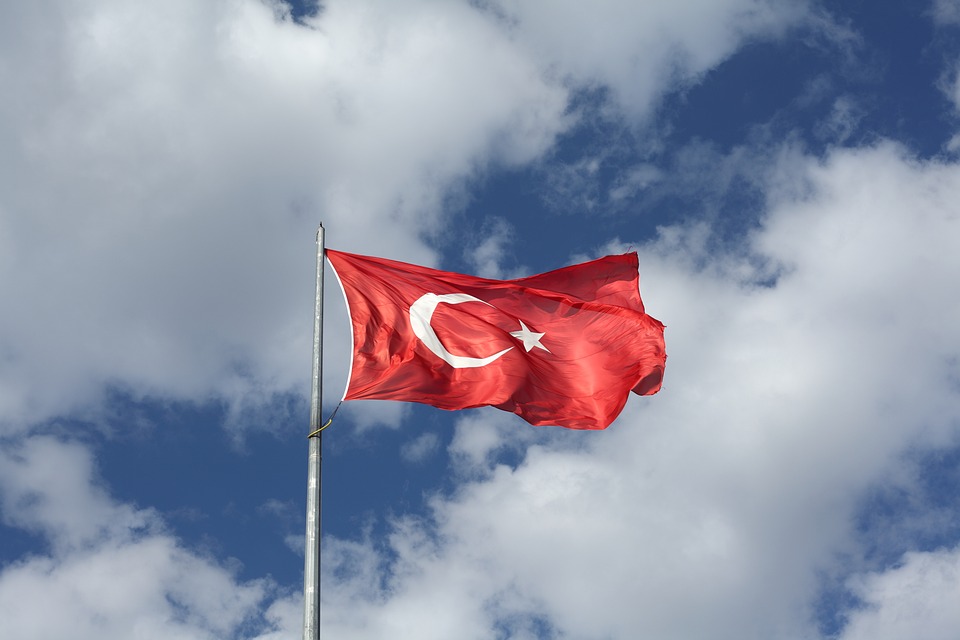Turkey has expressed disappointment with the recent ruling of the Swedish Supreme Court that blocked the extradition of a Turkish journalist. Turkey’s top diplomat called the decision “very negative.”
Speaking at a news conference in Ankara on Tuesday, Turkish foreign minister Mevlut Cavusoglu weighed in on the decision by Sweden’s highest court to block the extradition of Turkish journalist Bulent Kenes. Cavusoglu called the ruling a “very negative” development, especially at a time when Sweden seeks to gain Turkey’s approval to join the NATO alliance.
Last month, Turkish President Tayyip Erdogan specified Kenes as an individual Ankara wants to be extradited in order to approve Sweden and Finland’s bids to join the alliance. Ankara said Kenes is part of an organization that orchestrated a coup attempt back in 2016. Kenes has denied any wrongdoing.
Sweden’s foreign ministry said that it was bound to act in accordance with the decision of its highest court, which the Turkish foreign ministry noted in an emailed comment.
“We cannot speculate on what possible impact this will have on the NATO accession,” said the ministry. “Sweden’s government has to follow Swedish and international law when it comes to questions of extradition, which is also made clear in the trilateral agreement.”
Finland and Sweden filed joint bids for NATO membership back in May as a result of Russia’s invasion of Ukraine. The bids of the two Nordic countries ran into opposition from Turkey, as the NATO alliance is required to unanimously approve bids by countries to join. By June, Sweden and Finland agreed to take several measures to obtain Ankara’s approval in a trilateral agreement.
One of Turkey’s demands was the extradition of suspects that Ankara is looking for over terrorism-related charges. However, Sweden and Finland both made clear that they have not agreed to specific extraditions and that all requests would be dealt with in accordance with the laws of their respective governments and international law.
The Swedish Supreme Court said in a statement at the time of the decision that the coup accusations against Kenes were partly related to a political crime and that Kenes risked facing persecution due to his political views.



 Trump Allegedly Sought Airport, Penn Station Renaming in Exchange for Hudson River Tunnel Funding
Trump Allegedly Sought Airport, Penn Station Renaming in Exchange for Hudson River Tunnel Funding  China Warns US Arms Sales to Taiwan Could Disrupt Trump’s Planned Visit
China Warns US Arms Sales to Taiwan Could Disrupt Trump’s Planned Visit  Ohio Man Indicted for Alleged Threat Against Vice President JD Vance, Faces Additional Federal Charges
Ohio Man Indicted for Alleged Threat Against Vice President JD Vance, Faces Additional Federal Charges  U.S.-India Trade Framework Signals Major Shift in Tariffs, Energy, and Supply Chains
U.S.-India Trade Framework Signals Major Shift in Tariffs, Energy, and Supply Chains  US Pushes Ukraine-Russia Peace Talks Before Summer Amid Escalating Attacks
US Pushes Ukraine-Russia Peace Talks Before Summer Amid Escalating Attacks  India–U.S. Interim Trade Pact Cuts Auto Tariffs but Leaves Tesla Out
India–U.S. Interim Trade Pact Cuts Auto Tariffs but Leaves Tesla Out  Trump Signs “America First Arms Transfer Strategy” to Prioritize U.S. Weapons Sales
Trump Signs “America First Arms Transfer Strategy” to Prioritize U.S. Weapons Sales  Antonio José Seguro Poised for Landslide Win in Portugal Presidential Runoff
Antonio José Seguro Poised for Landslide Win in Portugal Presidential Runoff  Netanyahu to Meet Trump in Washington as Iran Nuclear Talks Intensify
Netanyahu to Meet Trump in Washington as Iran Nuclear Talks Intensify  U.S. to Begin Paying UN Dues as Financial Crisis Spurs Push for Reforms
U.S. to Begin Paying UN Dues as Financial Crisis Spurs Push for Reforms  Trump Allows Commercial Fishing in Protected New England Waters
Trump Allows Commercial Fishing in Protected New England Waters  Nicaragua Ends Visa-Free Entry for Cubans, Disrupting Key Migration Route to the U.S.
Nicaragua Ends Visa-Free Entry for Cubans, Disrupting Key Migration Route to the U.S.  New York Legalizes Medical Aid in Dying for Terminally Ill Patients
New York Legalizes Medical Aid in Dying for Terminally Ill Patients  Trump Endorses Japan’s Sanae Takaichi Ahead of Crucial Election Amid Market and China Tensions
Trump Endorses Japan’s Sanae Takaichi Ahead of Crucial Election Amid Market and China Tensions  Japan Election 2026: Sanae Takaichi Poised for Landslide Win Despite Record Snowfall
Japan Election 2026: Sanae Takaichi Poised for Landslide Win Despite Record Snowfall  Trump’s Inflation Claims Clash With Voters’ Cost-of-Living Reality
Trump’s Inflation Claims Clash With Voters’ Cost-of-Living Reality 































